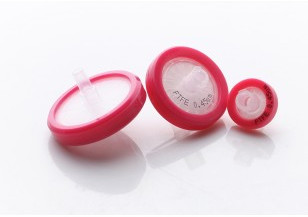The filter syringes can be understood as single-use cartridges attached to one of a syringe for lab filtration procedures. Typically, they include a plastic housing with a membrane that works as the filter. The most common sizes of syringe filter used for scientific applications are 0.2 and 0.45 microns. They are considered sufficient even for the HPLC uses. They can be used for removing the particulates from a sample, prior to HPLC analysis. Due to their affordability, they are also used extensively for general filtration purposes, especially in the applications involving smaller amounts of samples.
Selection Criteria for Filter Material:
When choosing the filters for syringes, it is important to assess the compatibility of filter material with the sample to be filtered and the test to be performed. Also, you should consider the ability of material to filter a majority of particles and substances without causing excessive back pressure.

How to Determine an Appropriate Pricing?
Like any other industry, the pricing of these filters also depends on the market value of the brand. The more recognized a brand name is, the higher will be its pricing. There are brands having excellent quality filters with high-end features. They offer their products at highly affordable prices to establish their brand name. It is advisable to check the quality and precision offered by a product.
What Is the Significance of Quality in Filters?
When you are using syringe filter in bulk quantities, you are probably paying a huge amount for them. Here, it is important to ascertain the requirements of these filters and the significance of their quality. There are several risks entailed the process of filtration conducted in the scientific laboratories. These risks mainly include:
Sample contamination that may be caused by cleanliness of the filter and rupturing of the filter due to overpressure.
Sample retention when the filer material binds unwanted substances in the sample. The filter clogging and back pressure may be caused by the overloading of the particulates. It can also result in filter ruptures causing threats to the lab workers.
Hence, it is advisable to buy the high-quality filters to mitigate these risks and maintain precision in the filtration process.
How to Make the Most of Your Investment?
If you are purchasing a lot of syringe filters, it is advisable to negotiate a contract with the manufacturer directly. You should prefer buying bulk packs of 1000 pieces for gaining big discounts on your purchase. It can save you a lot of money in the long run. Even for mid-sized customers, it is better to buy directly from the manufacturers to avail substantial cost benefit.
Ideally, you should look for the quality and specifications that suit the requirements of your filtration processes.


